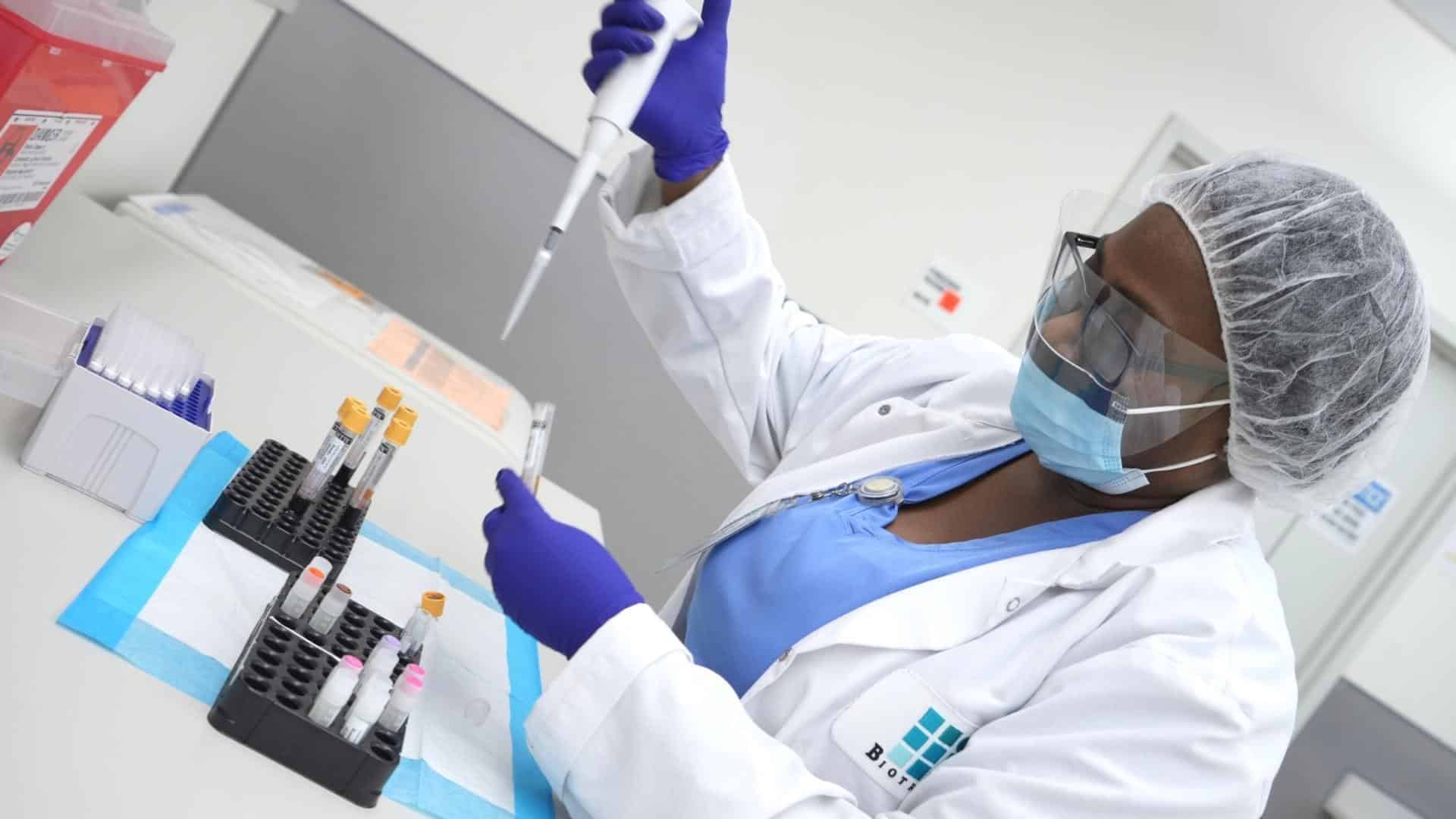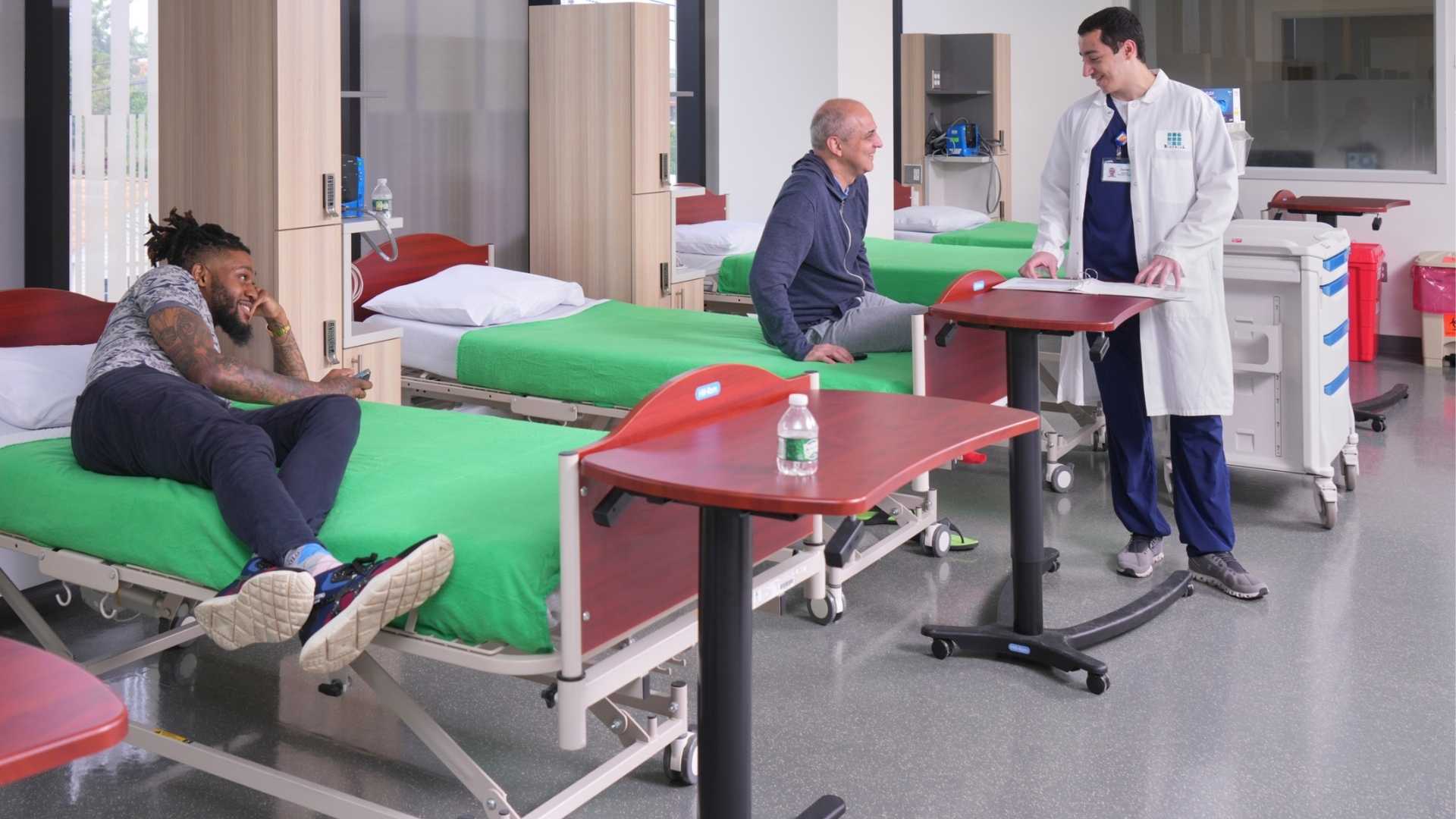Advancing Medical Knowledge
How Clinical Trials Contribute to Scientific Understanding
Clinical trials are essential for advancing medical knowledge, as they provide the critical data needed to evaluate new treatments and understand how they interact with the human body.
Through the systematic collection and analysis of data from clinical trials, researchers can gain insights into the mechanisms of diseases, the effectiveness of new therapies, and the potential side effects or complications that may arise. This knowledge helps refine existing treatments, improve patient outcomes, and guide future research directions.
For example, clinical trials have been instrumental in identifying the genetic factors that influence how different patients respond to certain medications, leading to the development of personalized medicine. By understanding these genetic differences, researchers can create more effective and targeted therapies, ultimately improving patient care.
The Role of Clinical Trials in Discovering New Treatments and Therapies
Clinical trials are the primary pathway through which new treatments and therapies are discovered and brought to market. Before any new drug or medical device is approved for widespread use, it must undergo rigorous testing in clinical trials to ensure it is safe and effective.
These trials are conducted in multiple phases, each designed to answer specific research questions and gather comprehensive data on the treatment’s impact.
For instance, the development of life-saving treatments for conditions such as cancer, HIV, and cardiovascular diseases has been made possible through clinical trials. These trials have not only introduced new drugs but have also uncovered new therapeutic approaches, such as immunotherapy and gene therapy, which have revolutionized treatment options for patients with previously untreatable conditions.
Clinical trials are the engine driving the discovery and validation of new medical treatments. They contribute to a deeper scientific understanding of health and disease, leading to innovations that improve patient care and save lives.
Ensuring Safety and Efficacy
The Importance of Testing Treatments for Safety and Effectiveness Before Public Use
Before any new treatment is made available to the public, it must undergo rigorous testing to ensure it is safe and effective. This process is crucial because it helps prevent potential harm to patients and ensures that the benefits of the treatment outweigh any risks.
Clinical trials are the primary method used to test these new treatments, and they are conducted in a controlled and phased manner to carefully evaluate their impact on human health.
Testing for safety ensures the treatment does not cause unacceptable side effects or adverse reactions that could outweigh its benefits. Meanwhile, testing for efficacy confirms that the treatment works as intended to treat or manage the condition it was designed for.
Without these critical steps, there is a significant risk of introducing ineffective or even harmful treatments into the healthcare system, which could jeopardize patient safety and undermine public trust in medical innovations.
How Clinical Trials Help Identify Side Effects and Optimal Dosages
Clinical trials are designed to identify potential side effects and determine the optimal dosage of a new treatment.
- Identifying Side Effects: During the early phases of clinical trials (Phase I and II), researchers monitor participants closely to detect any adverse effects. These side effects can range from mild, such as headaches or nausea, to more severe, such as organ toxicity or allergic reactions.
By identifying these effects early in the trial process, researchers can modify the treatment regimen, adjust dosages, or, in some cases, halt the development of a treatment that poses too great a risk to patients.
- Determining Optimal Dosage: Establishing the correct dosage is another critical aspect of clinical trials. An optimal dosage maximizes therapeutic benefits while minimizing side effects. In Phase I trials, researchers begin by administering low doses of the treatment and gradually increase the dose while monitoring the participants’ reactions.
This process, known as dose-escalation, helps identify the maximum tolerated dose (MTD) and the recommended dose for subsequent phases. When a treatment reaches Phase III trials, its dosage and administration protocols are usually well-established, ensuring that the treatment is safe and effective for a broader population.
Bringing New Treatments to Market
The Process of Developing and Approving New Treatments Through Clinical Trials
Bringing a new treatment from the lab to the market is a complex and multi-step process that relies heavily on clinical trials. This process typically begins with preclinical research, where scientists conduct laboratory and animal studies to gather preliminary data on the treatment’s safety and biological activity. If the results are promising, the treatment moves into the clinical trial phase, which is divided into multiple stages:
- Phase I Trials: The treatment is tested in a small group of healthy participants or patients to assess its safety, dosage range, and side effects. This phase is crucial for identifying any immediate risks associated with the treatment.
- Phase II Trials: The focus shifts to efficacy, where the treatment is given to a larger group of patients with the condition it is meant to treat. Researchers continue to monitor safety and begin to gather data on how well the treatment works.
- Phase III Trials: Large-scale studies involving hundreds or thousands of participants. The goal is to confirm the treatment’s effectiveness, monitor side effects, and compare it with standard treatments or a placebo. Successful Phase III trials provide robust data to support a regulatory submission.
- Regulatory Review and Approval: After successful completion of clinical trials, the treatment developer submits a New Drug Application (NDA) or Biologics License Application (BLA) to regulatory agencies such as the U.S. Food and Drug Administration (FDA). This application includes all data from preclinical studies and clinical trials, manufacturing information and proposed labeling.
The Role of Regulatory Agencies Like the FDA in This Process
Regulatory agencies like the FDA are pivotal in bringing new treatments to market. Their primary responsibility is to ensure that any new treatment is safe and effective for public use before it becomes available to patients.
- Reviewing Clinical Trial Data: The FDA rigorously reviews the data submitted in the NDA or BLA. This review process includes evaluating the clinical trial results, the treatment’s safety profile, the efficacy data, and the proposed labeling to ensure that it accurately reflects the treatment’s benefits and risks.
- Inspection and Compliance: The FDA also inspects the facilities where the treatment is manufactured to ensure they comply with Good Manufacturing Practice (GMP) standards. This step is critical for ensuring the treatment can be produced consistently and safely at a commercial scale.
- Approval and Post-Marketing Surveillance: If the FDA determines that the treatment is safe and effective, it grants approval, allowing it to be marketed and prescribed to patients. However, the process doesn’t end there. The FDA also requires ongoing post-marketing surveillance (Phase IV trials) to monitor the treatment’s long-term safety and effectiveness in the general population.
Improving Patient Care
Clinical trials are a cornerstone of medical advancement, directly improving patient care. By rigorously testing new treatments, therapies, and medical devices in a controlled environment, clinical trials provide the evidence to determine the best methods for preventing, diagnosing, and treating various health conditions.
- Development of More Effective Therapies: Through clinical trials, researchers can compare new treatments with existing standards of care to determine if the new approach is more effective. This can lead to the development of therapies that offer better outcomes, fewer side effects, or more convenient administration methods, all of which enhance patient care.
- Personalized Medicine: Clinical trials also play a key role in advancing personalized medicine, which tailors treatment to the individual characteristics of each patient. By identifying genetic, environmental, and lifestyle factors that influence how a patient responds to treatment, clinical trials help doctors choose the most effective therapy for each individual, thereby improving outcomes and reducing the likelihood of adverse effects.
- Improving Standards of Care: Successful clinical trials often lead to changes in medical guidelines and standards of care, ensuring that the latest and most effective treatments become widely available to patients. This continuous evolution of treatment protocols is essential for maintaining high standards of care across the healthcare system.
Benefits for Participants
Participating in a clinical trial offers various benefits to participants, depending on their role in the study. For many, especially healthy participants, financial compensation is a significant incentive. Biotrial, like many other research organizations, provides payment to participants for their time, effort, and commitment required to undergo study protocols. This compensation can be especially attractive for healthy individuals who contribute to early-phase trials for which the primary focus is safety and dosage.
In addition to financial compensation, participants receive thorough medical evaluations and ongoing health monitoring throughout the trial. This level of medical oversight, which includes regular check-ups and access to healthcare professionals, can be beneficial even for those not seeking treatment for a specific condition.
For individuals with serious or chronic health conditions, participating in a clinical trial can offer free access to new, potentially life-saving treatments not yet available to the general public. These participants might join trials to gain early access to innovative therapies that could significantly improve their health outcomes, especially when treatment options are limited or ineffective. In such cases, the benefit goes beyond financial compensation; it can provide hope and a chance for improved quality of life.
The Role of Participants in Advancing Healthcare for Others
Whether they are healthy participants or patients seeking new treatments, participants in clinical trials play a vital role in advancing medical research. By participating, they help researchers gather essential data necessary to evaluate the safety and effectiveness of new treatments. This data is crucial for developing therapies that can benefit future patients, helping to improve overall healthcare standards and outcomes.
For healthy participants, participation is particularly important in the early phases of trials, where understanding how a treatment interacts with the human body under normal conditions is key. This helps pave the way for later trials involving patients who may benefit directly from the new therapies.
Overall, clinical trial participants contribute significantly to the progress of medical science. Their involvement not only aids discovering and validating new treatments but also ensures that these innovations are safe and effective for widespread use. Whether motivated by compensation, a desire to contribute to science, or the hope of accessing breakthrough treatments, participants are an indispensable part of clinical research.
Biotrial’s Role in Clinical Trials
Overview of Biotrial’s Expertise and Contributions to Clinical Research
Biotrial is a leading Contract Research Organization (CRO) with extensive experience in conducting clinical trials across diverse therapeutic areas. Established over 30 years ago, Biotrial has become a trusted partner for pharmaceutical and biotechnology companies, providing end-to-end clinical trial services from early-phase studies to post-marketing surveillance.
Biotrial’s expertise spans all phases of clinical trials, including Phase I trials where safety and dosage are assessed, to large-scale Phase III trials that confirm the efficacy and safety of new treatments. The organization is equipped with state-of-the-art facilities and a multidisciplinary team of experts dedicated to ensuring that each trial is conducted with the highest standards of scientific rigor.
Biotrial’s contributions to clinical research are significant, as they have played a crucial role in bringing new and innovative treatments to market. By partnering with pharmaceutical companies, Biotrial helps to streamline the development process, enabling new therapies to reach patients faster while maintaining the strictest safety protocols.
How Biotrial Ensures the Ethical and Effective Conduct of Clinical Trials
Ethical conduct is at the core of Biotrial’s approach to clinical research. The organization is committed to protecting the rights, safety, and well-being of all trial participants, adhering to international standards such as Good Clinical Practice (GCP) and the Declaration of Helsinki. These guidelines ensure that all trials are conducted ethically, with respect for the dignity and rights of participants.
Biotrial employs rigorous screening processes to select suitable participants and implements comprehensive informed consent procedures to ensure that all volunteers fully understand the nature of the trial, including any potential risks and benefits. This transparency is crucial for maintaining trust between participants and researchers.
In addition to ethical considerations, Biotrial is dedicated to effectively managing clinical trials. The organization leverages advanced data management systems, continuous monitoring, and thorough quality control measures to ensure that trials are conducted efficiently and that the data collected is reliable and accurate.
This meticulous approach safeguards participant safety and ensures that the trial results are scientifically valid, providing a solid foundation for regulatory approval.
Overall, Biotrial’s commitment to ethical standards and its expertise in clinical research make it a pivotal player in developing new medical treatments, contributing significantly to the advancement of global healthcare.
Conclusion
Clinical trials are the backbone of medical progress, playing a vital role in advancing scientific knowledge, ensuring the safety and efficacy of new treatments, and ultimately improving patient care. From the discovery of life-saving therapies to the refinement of personalized medicine, clinical trials have a profound impact on public health. Participants in these trials, whether motivated by compensation, access to new treatments, or the desire to contribute to science, are essential to this process.
Biotrial’s extensive expertise in clinical research, combined with its commitment to ethical standards, makes it a leader in the field. By ensuring that each trial is conducted with the highest levels of rigor and respect for participant safety, Biotrial contributes significantly to the development of new therapies that can benefit patients worldwide.If you’re interested in becoming a part of this critical work, whether as a participant or a partner in research, we invite you to sign up or contact us today. Together, we can help bring the next generation of treatments to those who need them most.




